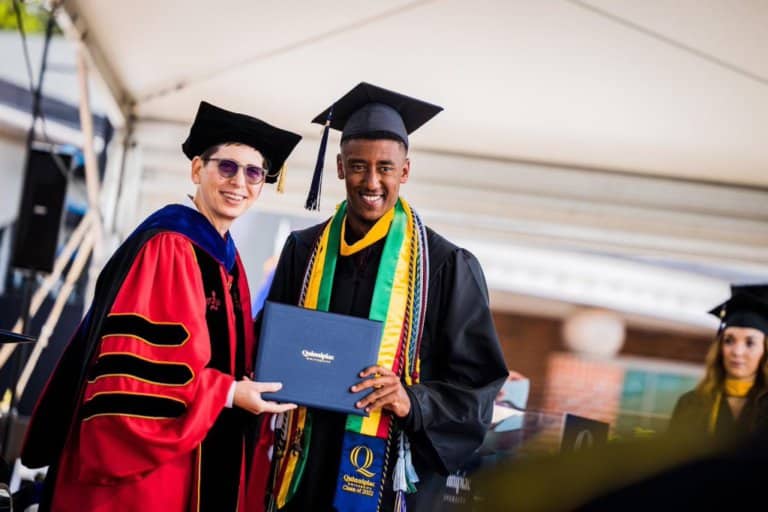
What are we willing to do to fight for our dreams?
Growing up financially troubled in Ethiopia’s capital Addis Ababa, Quinnipiac University student Dagmawi Bogale always wanted to pursue his higher education abroad.
At his high-school, the institution lacked the resources to for Dagmawi to embark on his academic interests. It’s not the kind of childhood where a small boy could become anything he wanted.
“There was not much flexibility. My sisters were bouncing from one school to another,” Bogale tells Study International. “We were also bouncing from one neighbourhood to another — just renting houses — due to the financial strains caused after the confiscation of the family’s property like our house, cars & businesses.”
In the later years, his sisters had to take on the family’s financial responsibilities including funding Dagmawi’s remaining tuition fee abroad. It kills Bogale to talk about the sacrifices the family had to make to sustain a normal living.
He could have given up at any point, but his family kept him going. Today, he is pursuing his passion for biomedical science at Quinnipiac University.

His sisters encouraged Bogale to study abroad when he was nine or 10 years old. Source: Dagmawi Bogale
Fueling his passion for microbiology
Bogale’s sisters encouraged him to think, explore and chase his passion: to become a scientist. “They didn’t know what my dream was, but they wanted me to go about and get the proper education they thought was fit for me,” he says.
It fueled his passion for microbiology at a young age — so much so that when his school couldn’t provide him with the facilities to conduct experiments, he turned to YouTube and took things into his own hands.
“I went out and brought basic experimental equipment and chemicals,” Bogale shares. “I wanted to see if certain [micro-organisms] reacted to specific natural remedies such as garlic.”
Later, Bogale shared his experiment results with his teacher — who invited the high school student to view his research at Addis Ababa University, the oldest and largest higher learning and research institution in Ethiopia.
“I saw how [AAU] lacked the equipment for students to do proper research,” says Bogale. He knew he could not study there.
When Quinnipiac University found him
After sitting for the SAT test, Quinnipiac University reached out to him to join them. “We had a financial arrangement,” says Bogale. “As an international student, when you’re given the opportunity, you take it.”
Asked about the cultural differences between the US and Addis Ababa, the Ethiopian wasn’t afraid to defend one of the “world’s best-kept secrets“: Ethiopian food.
He adds: “There are also so many options [in the US] for food, shops, or supermarkets that surprised me.”
Like many international students, Bogale missed home — especially the holidays. As an Ethiopian, holidays are a big part of his life and culture The biomedical science major lost out on that when he took on the 4+1 degree with Quinnipiac University.

Bogale’s mom who continues to support him through her unwavering faith and love. Source: Dagmawi Bogale
“This is for all of us, my whole family”
Bogale understands this is all part of the sacrifice to repay his family for everything they’ve showered him with.
Seeing him become the first in his family to receive a bachelor’s degree from Quinnipiac University was worth all the decades of toil they put in for him.
“I want my family to start focusing on themselves now. They’ve always focused on me. I wouldn’t have gotten through all this without knowing my family always telling me, ‘We trust you. We love you.’,” says Bogale in an Instagram post.
Convinced that his future lies with Quinnipiac University, Bogale has stayed on to pursue a master’s degree in biomedical sciences to advance his love for research.
For those who wish to study in the US, he advises students to be patient. “If you are coming from a developing country, be prepared to have thick skin,” Bogale says. “Don’t take no for an answer.”










